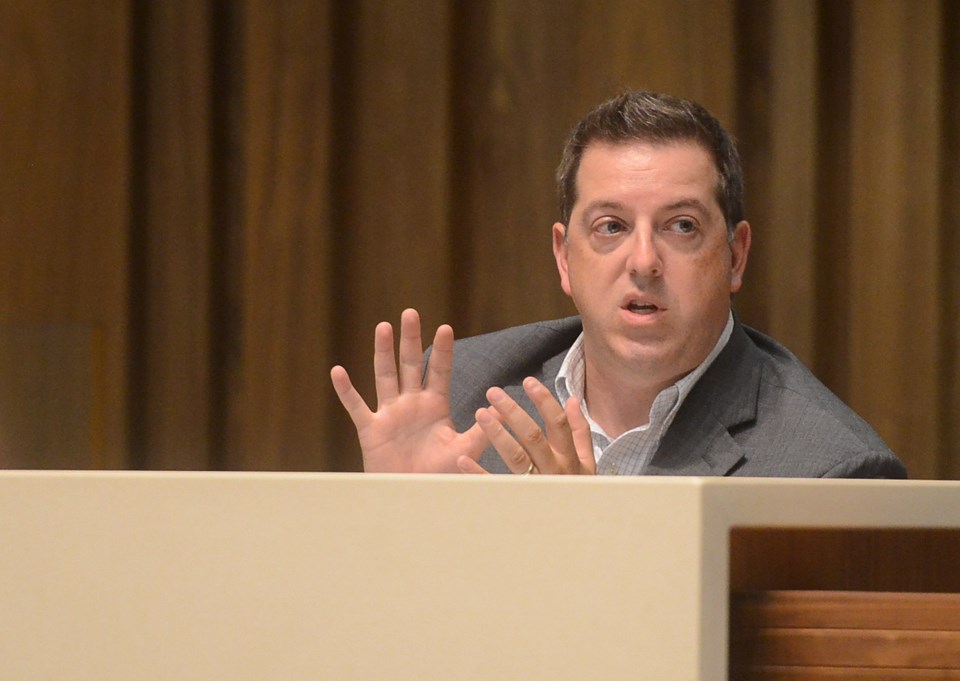Mayor Cam Guthrie says he would “immediately” recommend spending an extra $750,000 year to pay for additional police officers if re-elected in October.
“That is exactly what our community needs,” Guthrie said in an interview.
“People, including me, are sick and tired of the theft and crime and drugs, indecent acts, speeding in our neighbourhoods … this needs to be tackled,” the mayor said.
He said the city needs more visible frontline officers doing proactive community policing, not reactive policing.
“I see it being broken up into more frontline officers and technology and prevention-type programs that our community needs, but out of those three it will be heavily weighted towards more frontline officers,” he said.
“Everyone that I talk to say the city is going in the right direction, that we are checking the box off in all the right areas. It’s just this one area that we really need to focus our resources on and tackle these issues.”
The cost to taxpayers would be worth it, he said.
“It’s one of the top issues on people’s minds,” Guthrie said of increased concerns over crime.
The health and well-being of officers is also part of this, Guthrie said, and additional officers would help relieve the pressures the current officers are facing.
“It’s for the community and also for the well-being of the police service members,” said Guthrie, adding that he has discussed this with police chief Jeff DeRuyter several times, most recently last fall.
There were four offices added in the 2018 budget.
“But it’s not enough and we need to do more,” the mayor said.
Guthrie pointed out that he does not see more officers as the only way to tackle some of the issues facing our city, such as mental health issues and drug use, but it is one of them.
He said several current programs, some via outside agencies, that support or work in tandem with policing are worthy and we should look at ways of continuing them as funding from other sources dwindle or end.
“This doesn’t mean that there’s any ignoring other tools and other resources for addictions or mental health at all,” Guthrie said.
“But there are other concerns that I have where some of the funding comes from other stakeholders or upper level of government. The funding for certain programs is doing good work, but the funding for those programs is never a guarantee and it’s important we reevaluate after the election where we stand on grants and funding for programs that are non-frontline officer related.”
If programs are making a big difference in the community the city needs to continue to invest in them, he said.
“It goes hand-in-hand” with adding officers, Guthrie said.
“It’s not a this or that choice, it’s a this and that. We can do both, but right now we need to make sure the funding is weighted towards more officers in the community.”
